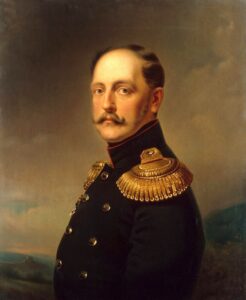
In a previous article, I wrote about the Ecumenical Patriarchate during the challenging years of 1840-52, leading up to the Crimean War. During this period, the Ottoman government repeatedly meddled in the internal affairs of the Ecumenical Patriarchate, which created tensions between Turkey and Russia, which viewed itself as the protector of the Orthodox Christians in the Ottoman Empire — especially the institution of the Ecumenical Patriarchate. To make matters worse, throughout 1852, the Orthodox and Roman Catholics fought over their rights in the Holy Land. Under pressure from France, the Ottoman government granted key concessions to the Roman Catholics, which further strained relations between Turkey and Russia. In May 1852, the French shocked everyone by sending an 80-gun ship up the Bosphorus. This and other French provocations led Russia to become more and more forceful about its own claims as protector of Orthodoxy.
In December, the newly-elected Ecumenical Patriarch Germanus IV made a direct appeal for Russia to come to the aid of the Patriarchate, concluding, “It is thus with tears in our eyes that we raise our voice on behalf of the vilified Orthodox Church… How long will the Orthodox Church bear the injustices of the Papists? How long will the People of the Lord cry out to the great Emperor and their voice not find answer? How can that invincible Monarch suffer Orthodoxy to be thus cast down and trampled under foot by the Papists?”
In response, at the beginning of 1853, Tsar Nicholas I created a special diplomatic mission to Constantinople, placing at its head one of his most trusted courtiers, Prince Alexander Menshikov. The mission’s task was to secure formal Ottoman recognition of Russia’s position as protector of Orthodoxy, and a guarantee from the Sultan of the ancient rights and privileges of Orthodox Christians in the Ottoman Empire, including the non-interference of the Turks in hierarchical elections. The Tsar even had his ministers draft the full text of a treaty to be presented to the Ottoman government. The treaty included provisions specific to the Holy Places dispute, but also contained much broader language about the rights and freedoms of the Orthodox subjects of the Sultan, and Russia’s role as protector.
The diplomatic mission arrived in Constantinople in late February, and on March 8, Prince Menshikov had an audience with the Sultan, where he delivered a personal letter from the Tsar. As Menshikov negotiated secretly with the Ottoman authorities in March, rumors spread that his aim was nothing less than the return of the Hagia Sophia to the Orthodox. Some wondered if Tsar Nicholas might even attend Pascha himself, and there was even speculation that the Orthodox priest who, according to legend, disappeared into the walls during the Hagia Sophia’s final Divine Liturgy in 1453, might reemerge. For a time, the Greek Orthodox people of Constantinople viewed Menshikov as a savior.
By April, flies had appeared in the ointment. The British and French caught wind of the draft Russian treaty and strenuously objected to it. Menshikov pivoted, focusing initially on the Holy Places issue and tabling the broader question of Orthodox rights in the Empire. The ordinary Orthodox of Constantinople began to sour on him – was Menshikov really concerned about them, or was he merely interested in securing privileges for Russia? By Holy Week, the disillusioned Orthodox of the city knew that there would be no Pascha at Hagia Sophia, and Menshikov himself was sick all week with a fever.
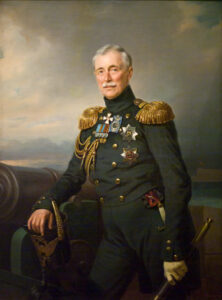
Once he recovered from his illness, Menshikov issued an ultimatum: if the Ottoman Empire did not agree to a modified version of the draft Russian treaty, Russia would break diplomatic ties. The Ottoman government responded that of course the Sultan would always respect the rights of the Orthodox, but he could not sign any official document to that effect because it would “destroy the basis of sovereign independence.” It was one thing for the Sultan to grant concessions of his free will; it was another thing entirely for him to give in to the demands of a foreign power. In response, Menshikov declared his diplomatic mission to be at an end, and the Russian government broke off diplomatic relations with the Ottoman Empire. Menshikov warned the Ottomans on May 18, “Any attack on the status quo of the Eastern Church and its integrity will be considered by the [Russian] Emperor… as an act hostile to Russia…” Two days later, the Ottoman government – advised by the British and French embassies – announced that the Sultan would soon issue a new firman guaranteeing the “spiritual” privileges of the Ecumenical Patriarch and the Orthodox clergy in perpetuity. The next day, as he prepared to depart Constantinople, Menshikov wrote to the Porte that a guarantee of merely “spiritual” rights was insufficient, as it invalidated other legitimate rights and privileges of the Orthodox clergy. He again warned that any violation of those rights would be viewed by the Tsarist government “as an act hostile to Russia and to her religion.”
On June 6, Sultan Abdulmecid presented the new firman to Ecumenical Patriarch Germanus with all due pomp and circumstance. With the Russians out of the way, the British ambassador then visited the Patriarch and assured him that Britain would do all it could to protect the Orthodox – a clear attempt by Britain to draw the Greek Orthodox into their own orbit.
At the end of June, Tsar Nicholas declared that Russia had no choice but to occupy the Danubian Principalities of Moldavia and Wallachia, until the Sultan promised to preserve “the integrity and privileges of the Orthodox church.” In early July, Russian troops crossed the Ottoman border into Moldavia and Wallachia. On July 13, the Ottoman government issued a formal proclamation acknowledging that “the real cause of the existing dispute with Russia is the desire of that Power to obtain a binding and exclusive engagement from the Porte concerning the religious privileges of the Greek churches and priesthood, which the Porte cannot in justice be expected to give.”
Over the summer, diplomats on both sides tried to work out a deal to avoid war, with no success. It was around this time that Tsar Nicholas labeled the Ottoman Empire “the sick man of Europe” – a moniker that stuck until the Empire fell after World War I. Muslims in Turkey openly feared a Russian invasion of Constantinople and the re-conversion of the Hagia Sophia into an Orthodox cathedral, and by September mass protests in Turkey called for a holy war. Turkish fears about the Hagia Sophia were not unfounded. A prominent Russian journalist wrote at the time, “As Orthodox Christians, we must preserve the Eastern Church and return to Hagia Sophia her ecumenical cross.”
***
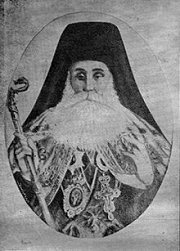
On September 26, 1853, Sultan Abdulmecid formally declared war on Russia, egged on by his allies in Britain and France. Two days later, Ecumenical Patriarch Germanus died from an illness. The British ambassador decided that the best choice to replace him was the former Patriarch Anthimus VI, who had been removed in 1848 on charges of bribery and embezzlement. Anthimus was duly elected on October 6, and the British ambassador boasted of his central role in placing Anthimus on the throne, predicting that “good of no ordinary kind will in time result from the part which I have taken in these events.” The historian Jack Fairey writes, “The election of Anthimos VI inaugurated a brief but unique chapter in the history of the patriarchate, characterized by an unusually close three-way relationship between the Phanar, the British embassy, and the Porte.”
Patriarch Anthimus immediately began issuing declarations of loyalty to the Sultan and urging his Orthodox flock to support the Ottoman Empire. He removed several bishops from their sees, in some cases under the influence of the British ambassador, and he acted as an informant to the British government.
Of the role of the European Powers, and particularly the British, in this difficult period in Orthodox history, Fairey writes, “Western, and especially British, diplomats were not content merely to promote a secularizing vision in Ottoman internal debates; they interfered forcefully in Ottoman religious affairs. Over the course of the quarter century between 1840 and 1865, the British embassy publicly demanded the removal of one patriarch (Grigórios VI), applied pressure to bring about the removal of three other patriarchs and one autocephalous archbishop (Ánthimos IV, Yermanós IV, Ioakeím II, and Ioanníkios II of Cyprus), hand- picked at least one patriarch (Ánthimos VI), and surreptitiously placed its finger on the scales, in one way or another, at every other patriarchal election. The Powers even sought to interfere in the ritual minutiae of religious life in the Ottoman Empire, with the British embassy urging the Porte to censor Orthodox liturgical texts and the French embassy insisting (over Russian and Orthodox objections) that Greek Catholic priests be allowed to dress like their Orthodox rivals and wear Orthodox- looking cylindrical hats (kalymáfchi).”
On November 1, Russia declared war on the Ottoman Empire. The Crimean War was on. Sheikh Effendi, the highest Islamic authority in the Empire, issued a fatwa declaring it every Muslim’s religious duty to battle against the Tsar. Meanwhile, thousands of Greeks, Bulgarians, Serbs, and Romanians living in the Ottoman Empire volunteered to fight on the side of the Russians, forming their own Orthodox legion. On November 30, the first major violence occurred, as the Russian navy destroyed a squadron of Ottoman frigates at the port of Sinope, on the Black Sea. This horrified the Turks and further inflamed the European Powers against Russia, leading Tsar Nicholas to lament, “Must I be the only one to fight under the Holy Cross and must I see others, calling themselves Christians, all unite with the Crescent to fight Christianity?”
***
On March 28, 1854, Britain and France declared war on Russia, joining the Ottoman side. That year, Orthodox Pascha coincided with Western Easter. Instead of the customary attendance of Russian diplomats at the Patriarchal Divine Liturgy at the Phanar, British embassy officials and soldiers attended. The British ambassador transformed himself into the chief advocate for the Ecumenical Patriarchate, and Patriarch Anthimus began to refer to him by the Russian ambassador’s old title, “protector of the Millet and of the Orthodox Church.” It seemed as if a new era had begun. Over the summer, the British went one step further – in collaboration with the Ottoman government, they tried to pressure Ecumenical Patriarch Anthimus to anathematize the Church of Russia. Yet even the compromised Anthimus knew better than to give in here, and he responded that he would rather resign than face the public backlash that would come from such an action.
In August, Britain, France, and Austria offered a four-point peace deal to Russia to end the Crimean War. Under the proposed deal, Russia would, among other things, relinquish its claim as protector of Orthodox Christians in the Ottoman Empire. Instead the European Powers would collectively protect those rights. The Russian government hated the proposal, but Tsar Nicholas I begrudgingly accepted it as the starting point for negotiations. Before negotiations were complete, on February 18/March 2, 1855, Nicholas I died and was succeeded by Alexander II.
In Constantinople, Patriarch Anthimus VI had been on the throne for going on two years. While he was a favorite of the British and had enjoyed their protection ever since they arranged his election, Anthimus was deeply unpopular within the Orthodox Church. He remained a corrupt man and through corruption had made himself quite rich, and he had no regard for his Holy Synod, making unilateral decisions and alienating pretty much everyone. In August, the Holy Synod of Constantinople had had enough, and they formally petitioned the Ottoman government that Anthimus be deposed. Anthimus appealed to his British sponsors, and the British embassy did everything in its power to keep the Patriarch in his position. Finally, though, the Ottomans gave in to the Holy Synod’s demands, and on September 29, Anthimus was deposed. The British ambassador immediately set about trying to return him to the throne.
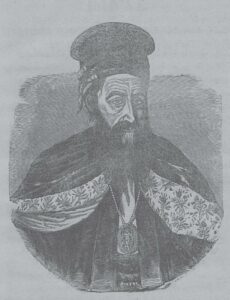
With no Russians around to protest, the Ottoman government openly declared its prerogative to choose the next Ecumenical Patriarch. This resulted in the election of Metropolitan Cyril of Amasea as Patriarch Cyril VII on October 2.
As for the Crimean War, things went from bad to worse for Russia. In September, the Europeans captured Russia’s crucial Black Sea port of Sebastopol, and at this point, Russia’s ultimate defeat was inevitable. The European Powers and Russia had a series of peace negotiations in Constantinople in January 1856 before moving on to Paris to finalize the deal. That deal included Russia’s abandonment of its claim as protector of Orthodox Christians in the Ottoman Empire, but just as crucially, it transferred the responsibility of protection to the European Powers collectively. Under pressure from those European Powers, on February 18, Sultan Abdulmejid promulgated the Hatt-i Humayun reform edict, which guaranteed a host of rights and privileges to the Sultan’s Christian subjects. The Sultan read out the edict in Constantinople in the presence of key dignitaries, including Ecumenical Patriarch Cyril VII.
The historian Paschalis Kitromilides summarizes the edict in this way: “it recognized the spiritual privileges and exemptions of Christian communities, secured the complete religious freedom of all religious confessions, granted permission to build and repair places of worship, schools, and philanthropic establishments, forbade forced religious conversions, proclaimed the complete equality of all subjects of the empire, forbade discrimination in favor of any religious community, granted to all the right to assume and exercise public offices, dignities, and visit state schools, it ordered the establishment of mixed courts, gave the option of buying exemption from military service, granted the right of property ownership to foreign subjects, and guaranteed complete religious toleration.”
Meanwhile, Russia agreed to the 1856 Treaty of Paris, which formally ended the Crimean War. Under the treaty, Russia was forced to withdraw from Moldavia and Wallachia, and the Romanian principalities and the Principality of Serbia were given greater autonomy, which reduced Russian influence over them. Russian warships were banned from the Black Sea. And crucially, the Tsar was forced to abandon his claim as protector of the Orthodox Christians in Turkey.
With the war over, normal diplomatic relations resumed between the Russian and Ottoman Empires, but the relationship between the Russian embassy and the Ecumenical Patriarchate would never be the same. The Russian diplomats viewed the Phanar as having betrayed the interests of Orthodoxy in the Crimean War. As one embassy official wrote in a report to the Tsar a couple years later, “The strained relations that exist between us and the Eastern Church [i.e., the Ecumenical Patriarchate] have nothing to do with individuals but are rather the product of a divergence of principles.” From now on, Russia would no longer support the Greek hierarchy, instead spending its diplomatic capital to benefit the laity of the Patriarchate. This would come to include a sympathy toward the Bulgarians who would agitate for their own church in the coming decades.
The best source for this period, by far, is Jack Fairey’s indispensable The Great Powers and Orthodox Christendom: The Crisis over the Eastern Church in the Era of the Crimean War (New York: Palgrave Macmillan, 2015). Another useful source was Paschalis Kitromilides, “The Ecumenical Patriarchate” in Lucian N. Leustean, ed., Orthodox Christianity and Nationalism in Nineteenth-Century Southeastern Europe (New York: Fordham University Press, 2014). Also, on the Crimean War more generally, see Orlando Figes, The Crimean War: A History (New York: Metropolitan Books, 2010).
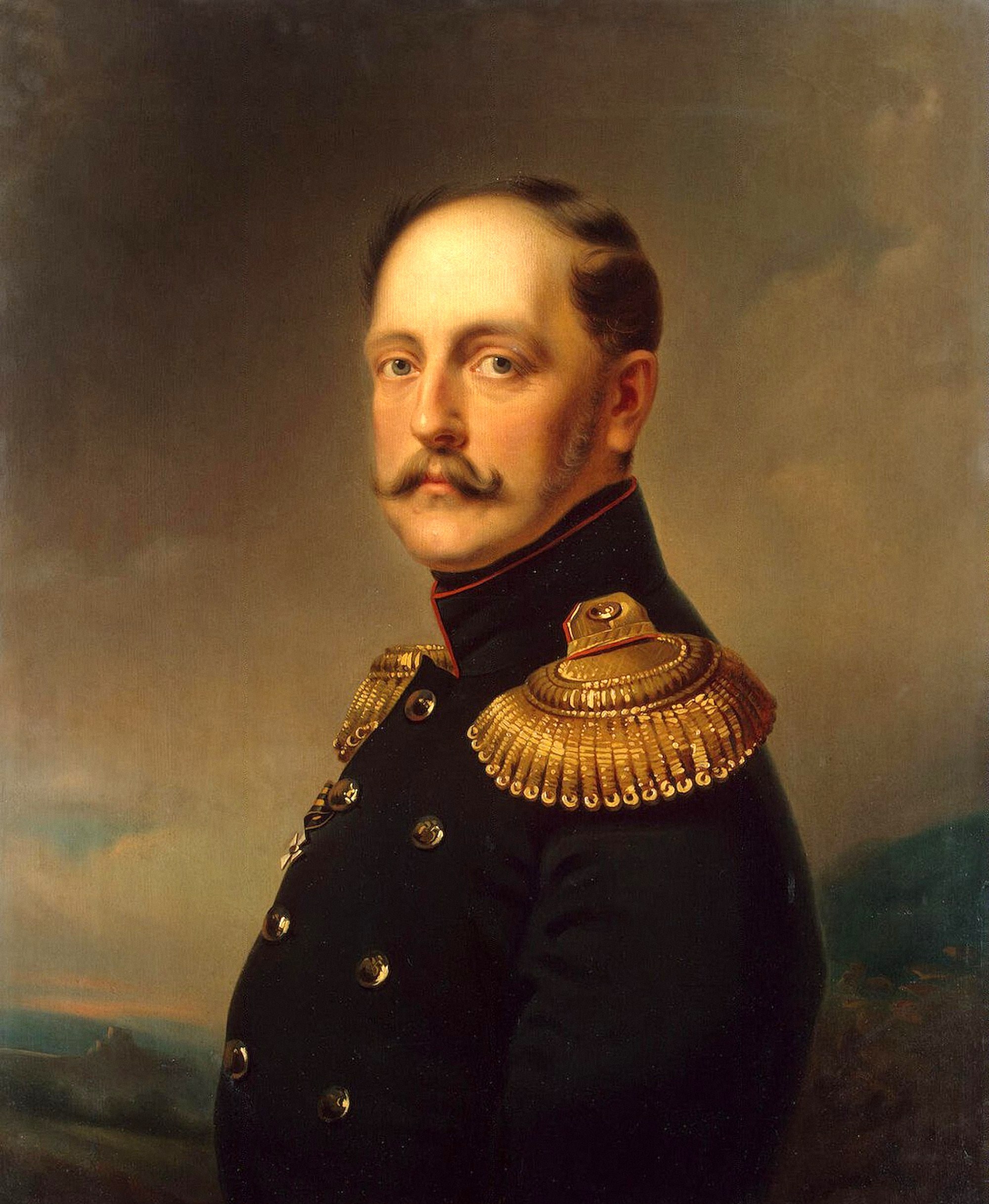
Leave a Reply